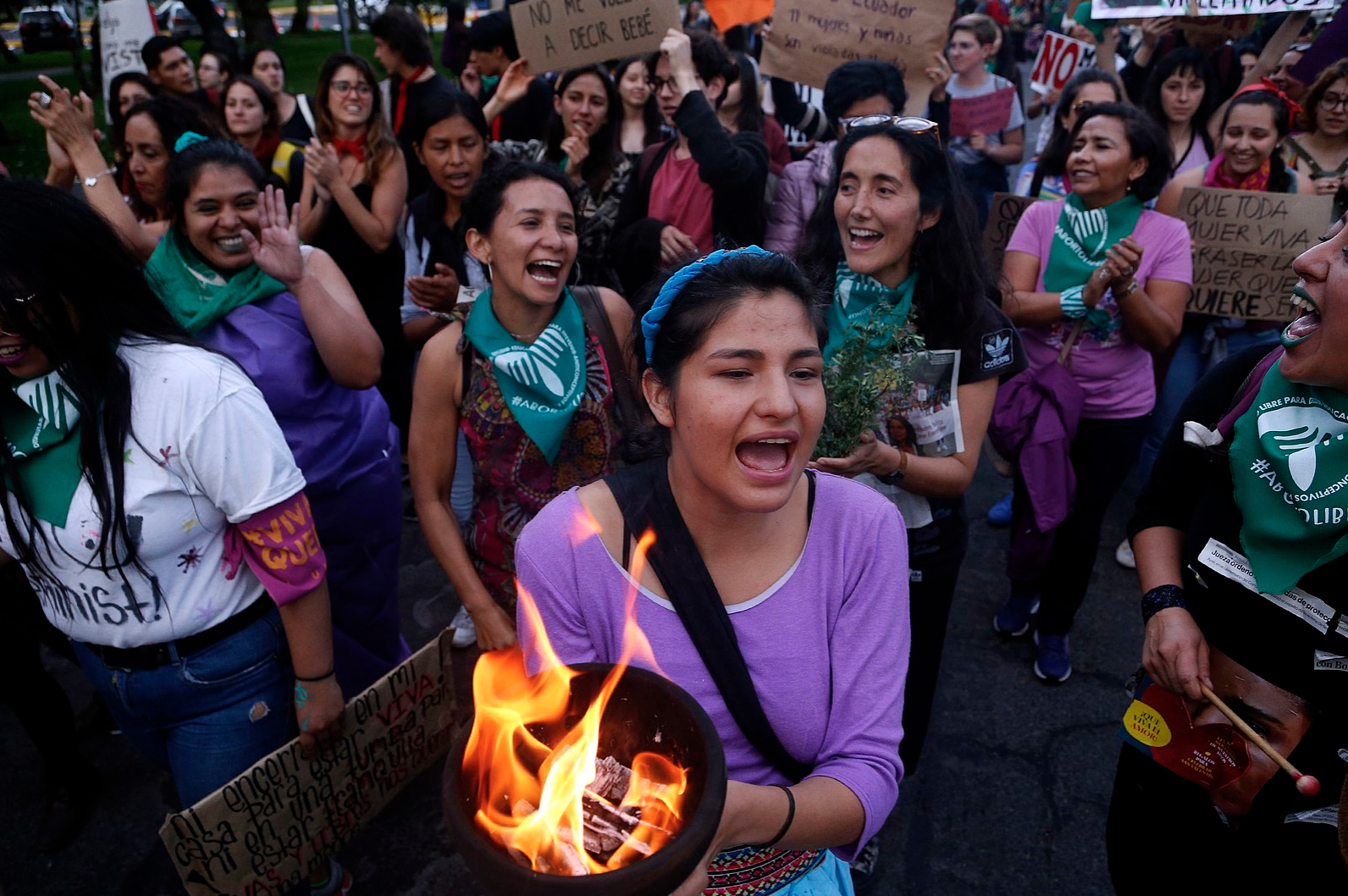On April 28, 2021, with seven votes in favor and two against, the Constitutional Court of Ecuador decriminalized abortion in cases of rape after having accepted the unconstitutionality action of Article 150 of the Integral Penal Code. Undoubtedly, this decision represents important advances both in terms of human rights in general and, specifically, in terms of women’s rights. However, the aforementioned law was vetoed by the president.
The president’s veto resulted in the modification of 61 of the 63 articles of the bill that had originally been approved by the assembly members. Although the law had originally established a period of 18 weeks for the voluntary interruption of pregnancy for girls, adolescents, indigenous, and rural women who were violated, the modification after the veto reduced this period to 12 weeks.
Also, the final law establishes that, in order for women to have access to voluntary interruption of pregnancy in cases of rape, they must comply with certain requirements, for example, a previous complaint by the victim or any person who knew about the case, or the signing of an affidavit by the victim.
The process has strained the relationship between the parties, and the final results fell far short of the expectations that had been generated among feminist organizations. In spite of the evidence and the numerous international experiences, one of the fears that had been instilled in society was that there would be an exponential increase in the number of abortions.
This statement does not correspond to reality; on the contrary, thanks to the new law, it will now be possible to avoid many clandestine abortions and their consequent medical complications. According to the World Health Organization (WHO), there is scientific evidence that the prohibition of abortion increases the risk of these clandestine practices, which generally result in the death of the mother. According to WHO and Amnesty International, unsafe abortions cause 39,000 deaths per year, are the third most common cause of maternal death in the world, and produce 5 million disabilities, largely preventable. In Latin America, this situation is especially dramatic in countries such as Honduras, El Salvador, and Nicaragua, which maintain laws prohibiting abortion in virtually all circumstances.
However, it is worth noting that the Ecuadorian Constitutional Court has made progress in recognizing the sexual and reproductive rights of victims of sexual violence, undoubtedly this is an essential step in the area of human rights.
A Historical Review of Women’s Rights in Ecuador
Historically, women have faced obstacles and impediments to exercising their rights. Although progress has been slow over the years, multiple challenges still persist. In this sense, it must be taken into account that gender relations express power relations and, therefore, every time an attempt is made to modify this order, conflicts occur within society.
There have been atrocities that are part of our history. For centuries women were not conceived as citizens, and until the beginning of the 20th century, we lacked the right to vote. But, in spite of everything, over time many rights have been achieved.
Ecuador was one of the first countries to recognize the right of suffrage for women, thanks to Matilde Hidalgo, who, after several efforts, finally achieved the approval of women’s suffrage in 1929. In 1981, Ecuador ratified the Convention on the Elimination of All Forms of Discrimination against Women (CEDAW), which determined that certain temporary special measures aimed at accelerating de facto equality between men and women would not be considered discriminatory.
In 1997, the first quota law was enacted to guarantee the right to work and non-discrimination in the workplace. In 2008, the Constitution instituted transcendental norms by determining the equal representation of women and men in positions of nomination or designation in the public service, in management and decision-making bodies, and in political parties and movements. In 2013, the National Assembly had for the first time in history a high degree of gender equity with 38% women.
In 2018, the approval of the Comprehensive Organic Law for the Prevention and Eradication of Gender Violence against Women was a fundamental milestone, as political violence was recognized as one of the types of violence against women. Subsequently, in 2020, the Reforms to the Democracy Code were approved, which determined for the first time the sanctions for gender-based political violence and the obligation for political organizations to register members on their lists for multi-person and single-person elections using parity and inclusion criteria.
Ecuador is improving in the protection of women, girls, and adolescents’ rights. However, although the regulations are evolving and adapting to the needs for a more equitable society, there is still the challenge of ensuring that the application of the regulations is effective and that they really benefit gender equality.
If a country does not defend the human rights of its women – and of its population in general – it will not be able to develop democracy or generate the relationships of equity, transparency, and trust on which good governments are built. Therefore, the struggle for women’s rights must continue to be strengthened to build a better society.
Translated from Spanish by Janaína Ruviaro da Silva
Autor
Internationalist, political scientist and lawyer. Currently, she is the national director of human rights, gender and inclusion of the Ministry of Public Health of Ecuador. Doctoral candidate in Law and Political Science and member of the Network of Women Political Scientists.











